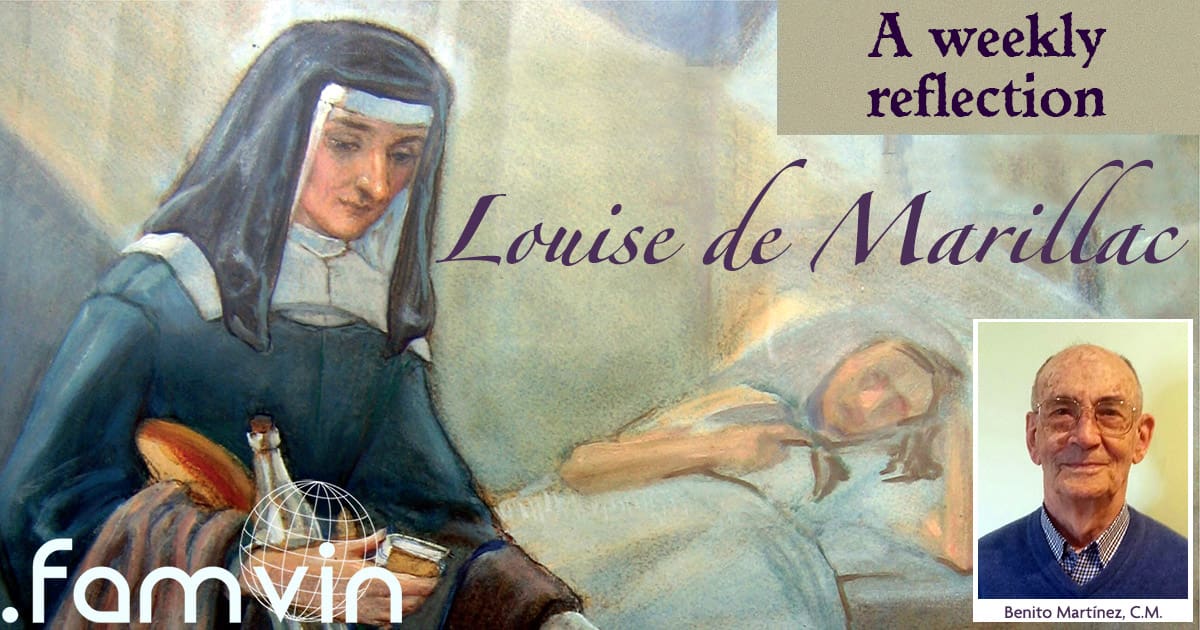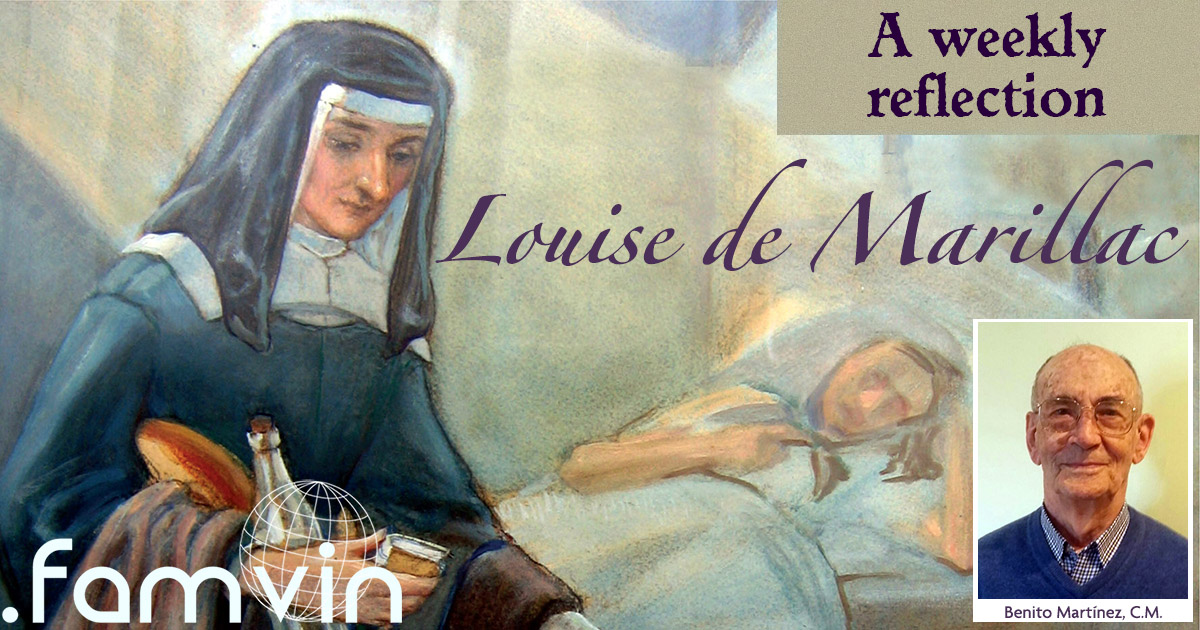To Have the Blessed Sacrament in the Community • A Weekly Reflection with Louise
“Perhaps they have told you that I have spoken on how essential the presence of the Blessed Sacrament is there, not ouly because of necessity, but so that Our Lord may take possession of the house in the eyes of those in any way associated with this work.” (l. 203).
Louise de Marillac, Letter to Saint Vincent about the stay of abandoned children in the castle of Bicêtre.
Reflection:
- When the revolt of the Fronde broke out in Paris in August 1648, Louise de Marillac was spending a few days in the palace of her friend the Duchess of Liancourt, and in a frightened way she writes to the Sisters of the House: “Please, I ask that there always be one or two of our sisters in the presence of the Blessed Sacrament. Alongwith so many other good souls, they will thereby try to help to appease God’s anger against us.” (l.221). It is one of the purposes of the presence of Jesus Christ in the midst of the community: to visit him easily to ask for help in the needs.
- Not only to ask for help, but also to visit him, as friends do. This ideal was so etched in the heart of St. Louise that it was inculcated to the Sisters that on their travels, when the stagecoach or the ship stopped in one place, they visited the Blessed Sacrament in the nearest church. And if they did not stop, but saw a church, salute Jesus who was in the tabernacle.
- Saint Louise also demanded that the community attend Mass every day, unless it was prevented from serving the poor, and not being able to do so she considered it an obstacle to founding.
- However, although he has a clear mentality of what the theology of the Council of Trent was about the Eucharist, it gives the impression that she sometimes considers the Mass to be one more — but more important — devotion.
- The warnings of Saint Louise are urgent to bear in mind today, for there is danger that we may also consider the “Mass” as one more devotion. Some do not go to Mass because they do not feel like it, and to go reluctantly, it is preferable not to go. However, the obligatory things have to be done without feeling like it. May we go to Mass willingly to show God that we love Him, and participate in the most sublime act of humanity as the sacrifice of Christ that redeems the world.
- Others say they do not go to Mass because for them that does not make sense. How will it make sense if they have a lamentable religious ignorance? No one can convince them what they do not know. But a jewel does not lose its value because there are people who do not know how to appreciate it.
- On the other hand, she also tells us to visit Jesus in the Tabernacle, that his presence is to take possession of the place, the earth, the world, so that we come to Him and show him our feelings, to tell him that we are friends, brothers and that we love each other. It is to ask for the help we need so much in these times of poverty, misery, wars and violence.
Questions for dialogue:
- Can the Mass be substituted on holidays with another practice or with a Mass on other days or with Mass on television or radio?
- How do you understand the command to sanctify the feasts?
- Do you consider it true that Sunday is the memorial of the Passover, when the faithful feel and are community, People of God and Church, united by the Spirit of the dead and risen Christ?
- How do you see that God gives you six days of the week and only reserves one for Him?
Benito Martínez, C.M.








0 Comments